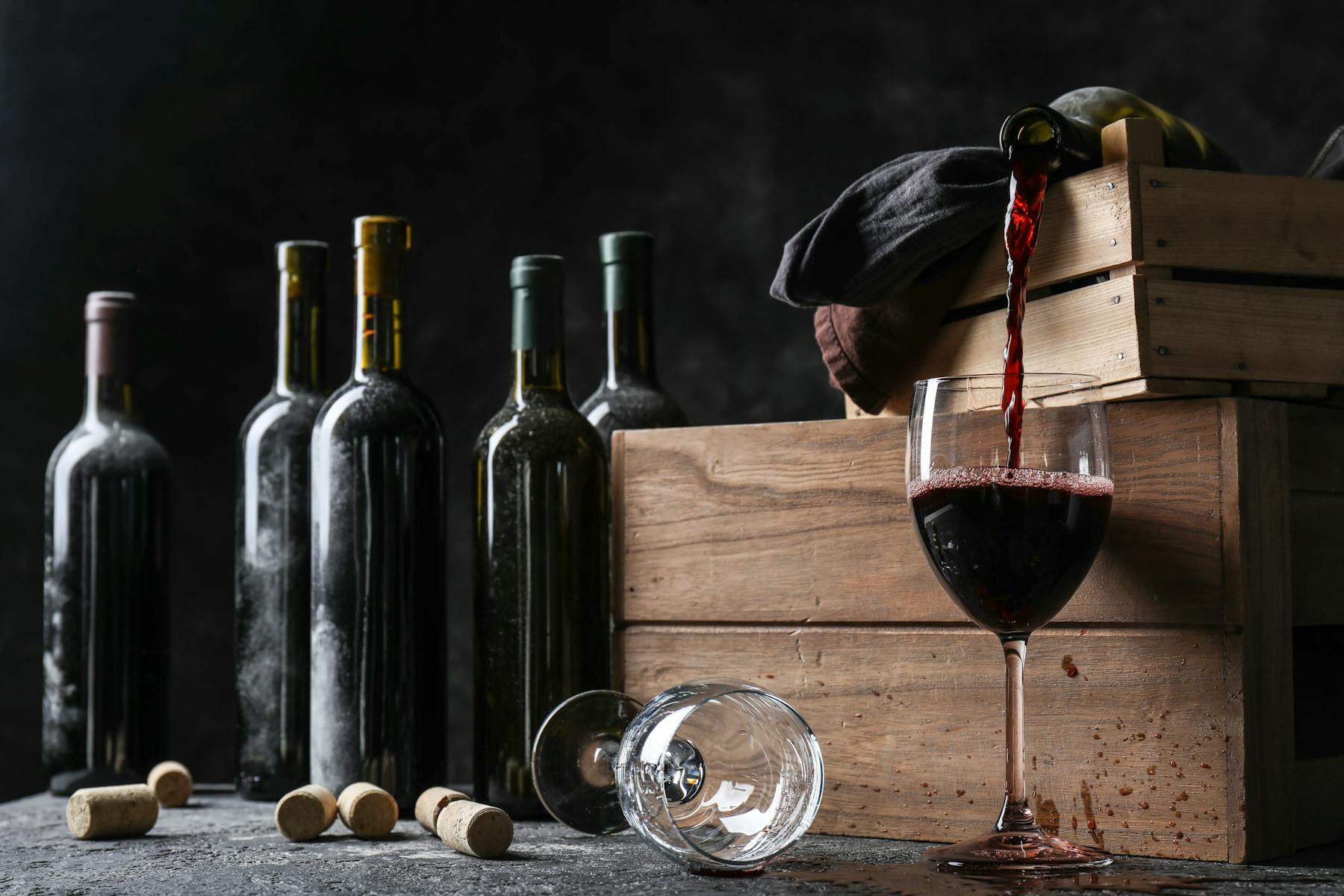- Wine world
How to choose and store great wines for laying down?
- Tue, Sep 10, 2024 at 18:00

What is a ageing wine?
A ageing wine is a wine that can age in the bottle for several years while continuing to improve. Unlike everyday wines, which are intended to be drunk within two to three years of bottling, ageing wines are designed to evolve over time. They have a solid tannic structure, well-defined acidity and great aromatic potential, enabling them to age and develop more complex aromas and deeper flavors.
Red wines, particularly those made from grape varieties such as Cabernet Sauvignon, Merlot, Pinot Noir or Syrah, are often the most suitable for aging. White wines are not to be outdone; some, like the great white Burgundies or German Rieslings, can also improve with age.
How to choose a wine for ageing?
- Terroir and appellation: great wines for laying down often come from exceptional terroirs, where climate, soil and winemaking skills combine to produce wines of great complexity. Look for wines from renowned regions such as Bordeaux, Burgundy, Rhône and Champagne. Appellations contrôlées (AOC) are a good indicator of quality and ageing potential.
- Vintage: not all vintages are created equal. Some are better suited to ageing than others, due to the climatic conditions of the year of harvest. An exceptional vintage will produce a wine of great concentration, capable of improving over several decades. Don't hesitate to consult the vintage guides to help you make your choice.
- Grape variety: as mentioned above, some grape varieties are better suited to ageing than others. Cabernet Sauvignon, for example, produces robust wines that age well, while the more delicate Pinot Noir can also offer wonders after a few years in the cellar. Learn about the characteristics of each grape variety to make an informed choice.
- Wine structure: a wine for ageing must have a solid structure, with firm tannins, marked acidity and a balance between the various components (alcohol, sugar, acidity, tannins). This structure will enable it to age harmoniously.
- The producer: great wines for laying down are often the fruit of the work of talented winemakers, renowned for their rigor and expertise. Choosing renowned estates or producers with a reputation for excellence is an additional guarantee of quality.
How to store your wines for ageing?
Once chosen, it's essential to store your bottles of wine in optimal conditions so that they age properly. Here are the main factors to consider:
- Temperature: wine likes stability. Ideally, it should be stored at a constant temperature of around 12°C. Variations in temperature can alter the quality of wine, accelerating aging in unpredictable ways. If possible, invest in a refrigerated wine cellar to maintain a stable temperature.
- Humidity: humidity levels of between 70% and 80% are ideal for keeping corks supple and preventing them from drying out. If humidity levels are too low, corks can shrink, allowing air to enter the bottle and oxidize the wine. Conversely, too high a humidity level can encourage the growth of mold on labels and corks.
- Light: wine must be protected from light, especially UV rays, which can degrade the wine's organic compounds and alter its aromas. Keep your bottles in the dark, or use special light bulbs that do not emit UV rays.
- Bottle position: wine bottles should be stored lying down, so that the wine is in contact with the cork. This prevents the cork from drying out and keeps the bottle airtight. However, some sparkling wines, such as Champagne, can be stored standing up.
- Vibrations: vibrations can disturb wine by altering its chemical evolution. Avoid storing your bottles in a place where they could be subjected to constant vibration, such as near a machine or household appliance.
When to drink a long-ageing wine?
The big question for any wine lover is when to open a bottle of ageing wine. The art of tasting a wine at its peak relies on a combination of patience and wine knowledge. Some wines reach maturity after 5 to 10 years, while others require 20 or even 30 years of ageing.
It's important to monitor the wine's evolution by occasionally tasting a bottle if you have several. Expert tasting notes can also help you determine the best time to open your bottles. Don't forget that the ideal moment also depends on your personal preferences: some prefer fully matured wine, while others appreciate it while still young, with its fruity aromas and liveliness.
Wines for laying down to be drunk in moderation
Choosing and storing great ageing wines is an art that requires patience and care. By taking the time to choose your bottles carefully and storing them in optimal conditions, you will be rewarded with wines of incomparable complexity and depth. The pleasure of tasting a wine at its peak is priceless, and represents the culmination of years of care and waiting. So look after your grands crus, and don't forget to create memories when you open them.
